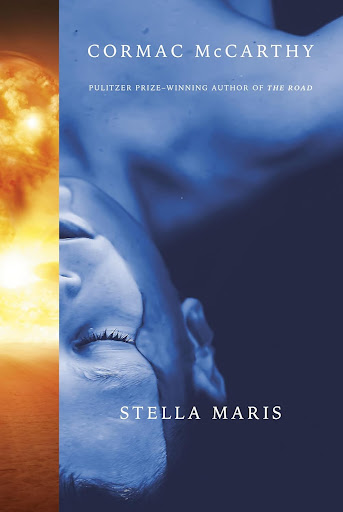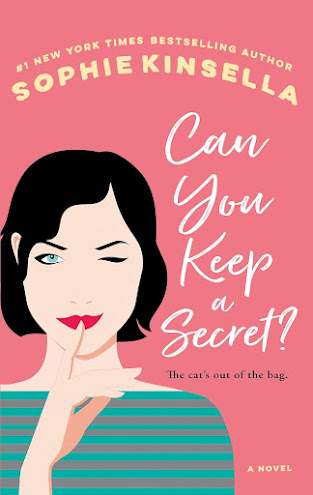Week 14 Prompt Response: LGBTQ fiction and urban fiction
I would choose not to separate LGBTQ or urban fiction from the general collection. I actually have four reasons, and the first is impracticality. If I were to put together an LGBTQ collection, it would either include books for all age groups, or only books for teens and adults. The former option would probably upset some patrons, because there would be books with mature content located right beside children's books. Some parents might be upset to see their child looking at a pretty picture book with a rainbow on the cover, knowing that a super spicy gay romance was right next to it. But the latter option makes the whole exercise seem unnecessary, because if only LGBTQ books for teen and adults are included in the LGBTQ collection, children's books with LGBTQ themes would still be part of the general children collection. Thus, what would be the point of the separation in the first place? Also, fiction is not the only realm where LGBTQ themes exist. There is LGBTQ nonfiction, history, psychology, biography, music, film, etc. To separate LGBTQ fiction, but leave all other LGBTQ materials mixed in with the general collection, also feels strange and unnecessary.
My second reason applies more to urban fiction, and it is simply this: while fiction books are grouped according to the target audience's age group, they are not separated or categorized by content, so I can't see any reason for separating urban fiction from the general collection that isn't rooted in classism or racism. Urban fiction might contain profanity, or thematic material that disturbs some readers, but the same can be said for any type of fiction.
My third reason connects to a point I liked in the article by Tarulli (2018), which we read this week. She explains the choice behind the genre heading "Gender and Identity," noting that conservative students “didn’t find it too aggressive and would not be too uncomfortable if their parents saw them searching it” (pg. 249). I think the same idea applies to a collection of LGBTQ fiction or urban fiction. Creating a separate collection for just these specific materials might seem like a more "aggressive" move to conservative patrons than simply allowing these books to exist in the general collection. Now, this is not to say that I think these books should be hidden, or that these issues should be kept quiet. Visibility is hugely important, and I'm all for libraries creating displays of diverse materials and advocating for minorities. But when it comes to the specific question of separating these collections, it does feel like it might be an unnecessary source of conflict.
Lastly, I think a distinctly LGBTQ or urban fiction collection could actually create a barrier for patrons who want to read these books, but who might not feel comfortable being seen in those distinct sections. For example, a teen patron who wants to check out an LGBTQ fiction book, but whose parents would not approve, might not want to approach a collection entitled "LGBTQ Fiction," for fear that their parents might notice. The ALA Bill of Rights states, “All people, regardless of origin, age, background, or views, possess a right to privacy and confidentiality in their library use” (2022, para. 8). As a gay man myself, I think it's super important to remember that patrons, especially younger patrons, deserve privacy when it comes to what books they look at and check out from the library. That privacy would be much harder to maintain if all LGBTQ books were kept in one spot at the library.
References:
American Library Association. (2022, September 7). Library bill of rights. Advocacy, Legislation & Issues. https://www.ala.org/advocacy/intfreedom/librarybill
Tarulli, L. (2018). Gender, Sexuality, and Identity in Fiction : Suggesting New Titles to Make All Readers Feel Like They Belong. Reference and User Services Quarterly, 57(4), 248–250.
My second reason applies more to urban fiction, and it is simply this: while fiction books are grouped according to the target audience's age group, they are not separated or categorized by content, so I can't see any reason for separating urban fiction from the general collection that isn't rooted in classism or racism. Urban fiction might contain profanity, or thematic material that disturbs some readers, but the same can be said for any type of fiction.
My third reason connects to a point I liked in the article by Tarulli (2018), which we read this week. She explains the choice behind the genre heading "Gender and Identity," noting that conservative students “didn’t find it too aggressive and would not be too uncomfortable if their parents saw them searching it” (pg. 249). I think the same idea applies to a collection of LGBTQ fiction or urban fiction. Creating a separate collection for just these specific materials might seem like a more "aggressive" move to conservative patrons than simply allowing these books to exist in the general collection. Now, this is not to say that I think these books should be hidden, or that these issues should be kept quiet. Visibility is hugely important, and I'm all for libraries creating displays of diverse materials and advocating for minorities. But when it comes to the specific question of separating these collections, it does feel like it might be an unnecessary source of conflict.
Lastly, I think a distinctly LGBTQ or urban fiction collection could actually create a barrier for patrons who want to read these books, but who might not feel comfortable being seen in those distinct sections. For example, a teen patron who wants to check out an LGBTQ fiction book, but whose parents would not approve, might not want to approach a collection entitled "LGBTQ Fiction," for fear that their parents might notice. The ALA Bill of Rights states, “All people, regardless of origin, age, background, or views, possess a right to privacy and confidentiality in their library use” (2022, para. 8). As a gay man myself, I think it's super important to remember that patrons, especially younger patrons, deserve privacy when it comes to what books they look at and check out from the library. That privacy would be much harder to maintain if all LGBTQ books were kept in one spot at the library.
References:
American Library Association. (2022, September 7). Library bill of rights. Advocacy, Legislation & Issues. https://www.ala.org/advocacy/intfreedom/librarybill
Tarulli, L. (2018). Gender, Sexuality, and Identity in Fiction : Suggesting New Titles to Make All Readers Feel Like They Belong. Reference and User Services Quarterly, 57(4), 248–250.


Hi Dallin, when thinking about urban fiction I too wondered if having an urban section would be problematic. Another classmate pointed out that there are still books by BIPOC authors and with BIPOC characters elsewhere in the library, but that urban has very distinct themes, much like mystery or romance have very distinct themes, and that is why it is exists as another genre. Many of my library patrons appreciate that urban fiction has it's own section because it makes them feel seen and like there really is something for them at the library. Also, it saves them from needing to go digging around in fiction!
ReplyDeleteYes! Thanks for this comment. I saw a couple of others having this same conversation, and it makes a lot of sense.
DeleteGreat job pulling the readings into your response! Very well stated and thought out!
ReplyDelete